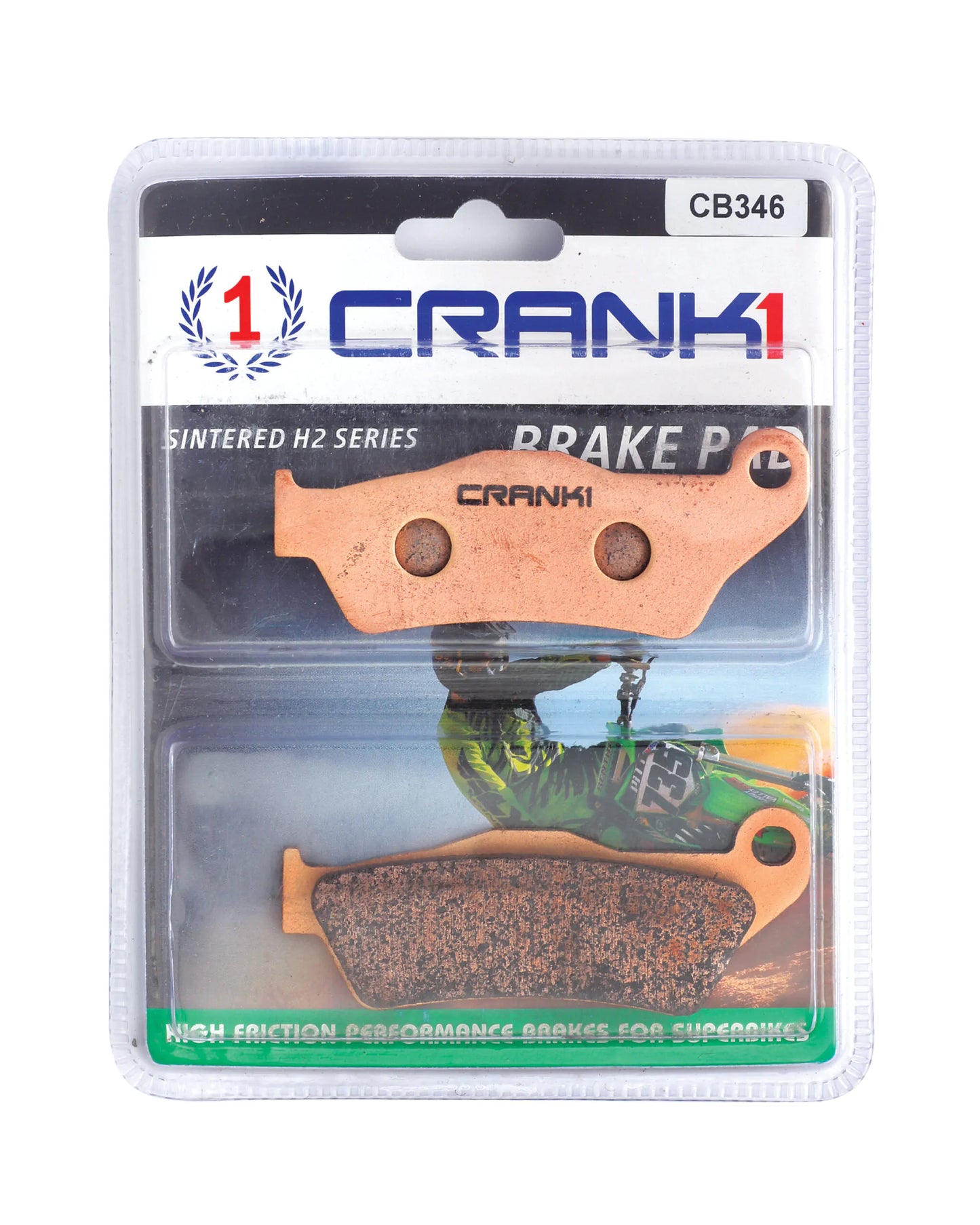CRANK1 Sintered Brake Pads are commonly used in superbikes. They are known for their durability, high performance, and ability to handle extreme riding conditions. Here are some key features and benefits of CRANK1 sintered series.
HIGH HEAT TOLERANCE:
CRANK1 Sintered brake pads excellent in high-temperature conditions, making them suitable for aggressive riding, track use, or challenging terrains. They maintain their performance even under heavy braking & preventing brake fade.
EXCELLENT STOPPING POWER
CRANK1 Sintered Pads offer strong and consistent stopping power, making them ideal for riders who demand precise control and responsiveness from their brakes. This is especially important in situations that require quick stops.
LONGER LIFESPAN:
Due to their robust construction, CRANK1 sintered series typically have a longer lifespan than organic or alternatives. This can result in fewer replacements and reduced maintenance costs over time.
VERSATILITY:
CRANK1 Sintered series perform well in various weather conditions, including wet or muddy environments. They maintain their effectiveness even when wet, providing reliable stopping power in diverse riding conditions.
LESS BRAKE FADE:
CRANK1 Sintered Pads helps in minimise brake fade.
SUITABLE FOR TOURING:
CRANK1 Sintered Pads are often recommended for motorcycles carrying heavy loads, such as touring bikes or those used for long-distance travel. Their durability and heat resistance make them well-suited for these applications.
Please refer to image for size/specification.
Specific pressure : P < 5,1 Mpa
Sliding speed : V <30 m.
Constant maximum temp : 680 °C
Short time maximum temp : 830°C
FEATURES:
- Very high static friction coefficient
- Low abrasive interaction with the brake rotor material
- Special braking surface modification
- A stainless-steel heat shield for thermal isolation fitted on the back side of the brake lining
- Minimal difference between braking performance in dry and wet conditions
- High quality abrasive resistance
- High braking power up to 660°C (max. 830°C)
- The sintered friction material is soldered to the copper coated backing plate, so separation (which can happen with organic material) is virtually eliminated as a failure risk


